Backpacking in Morocco is a lifetime adventure for everyone. Do you love old things? Nature? Or just trying new stuff? Morocco is perfect for you! A country with a long history, beautiful mountains and deserts, and friendly people. So pack your backpack and get ready for an incredible trip to Morocco! In this travel blog; we will go through everything you need to know to plan the best backpacking trip in Morocco!
Backpacking Preparation for Morocco
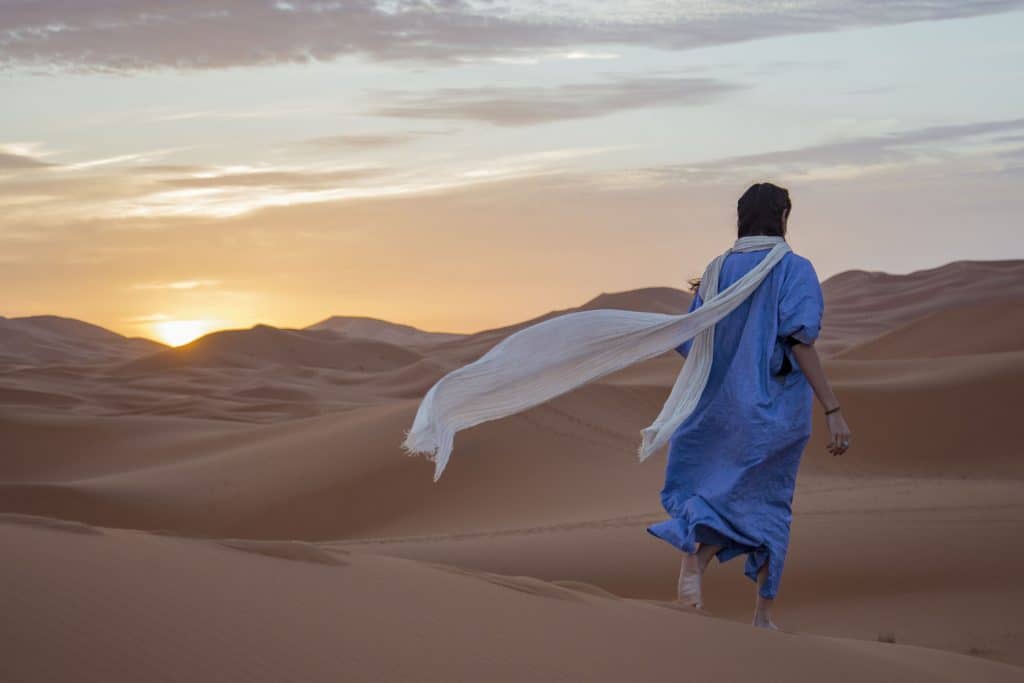
Travel Tips for Backpackers Travelling to Morocco
Morocco like everywhere in the world has different ways of doing things and it is good to learn a little about how people perceive you. This will help you have a fun trip, be nice to the people, and get accepted. Shaking hands or saying “Salam” (hello) is the most common way to greet someone. You can try to learn a few words in Arabic or Berber through this blog; Moroccan Phrases.
Traveling around Morocco with a backpack can be cheap if you know how to correctly manage things. Here are some easy tips:
- Sleep in places like hostels or small hotels to save money. These places often have areas to hang out with other travelers and hear about their adventures in Morocco.
- Eat like a local! Try the street food (make sure you go to clean places). Moroccan cuisine is rich: Tagines and Couscous, Tanjia, Pastilla…
- Use public transportation: Buses and trains are cheap ways to get around Morocco
Currency and Money
The Moroccan currency is called dirhams (sounds like dir-hahm). You can get dirhams (MAD) at banks or exchange places when you get there. In big cities like Marrakech, you can often use your credit card, but not in smaller towns or for street food. It is good to have some cash with you, especially small bills, so you can buy things from sellers at markets or pay for buses. This way, you will not get stuck if a place doesn’t take cards!
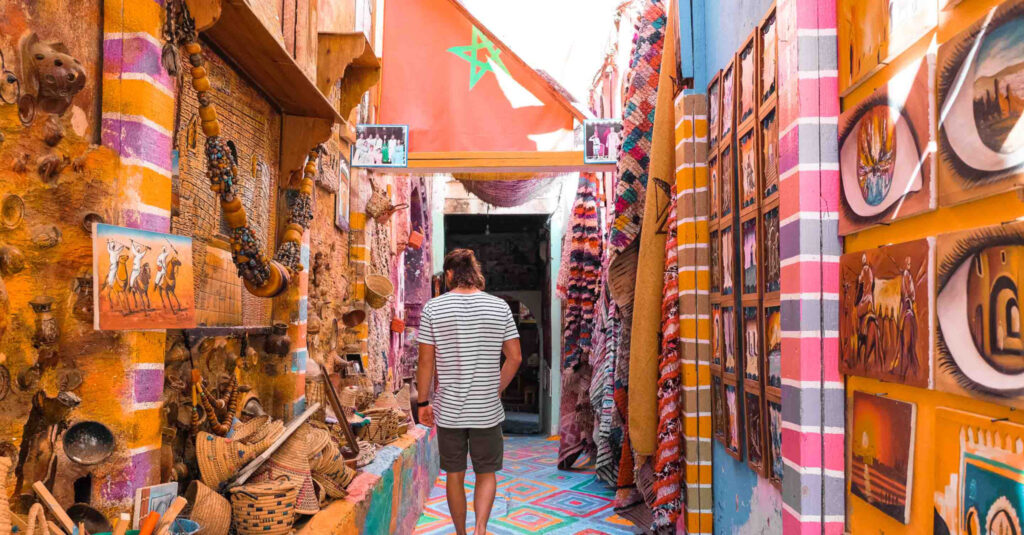
Best Time to go Backpacking to Morocco
The best time to backpack in Morocco depends on what you like to do:
- Spring (March-May) & Autumn (Sept-Nov): The best time to go backpacking in Morocco, not too many tourists. Perfect for exploring deserts, cities, mountains, and beaches.
- Winter (Dec-Feb): Cooler weather, good for those who don’t like heat. But some areas can get very cold.
- Summer (June-August): Very hot, especially in the desert.
Other things to take into consideration:
- Ramadan: A Muslim holiday when people don’t eat during the day. Some shops and restaurants might be closed, but it can also be a cool cultural experience.
- Weather: Check the forecast before you go, especially if you’re planning on hiking or spending time outdoors.
- Festivals: Morocco has lots of cool festivals throughout the year. Check what’s happening when you plan to be there!
Moroccan Transportation
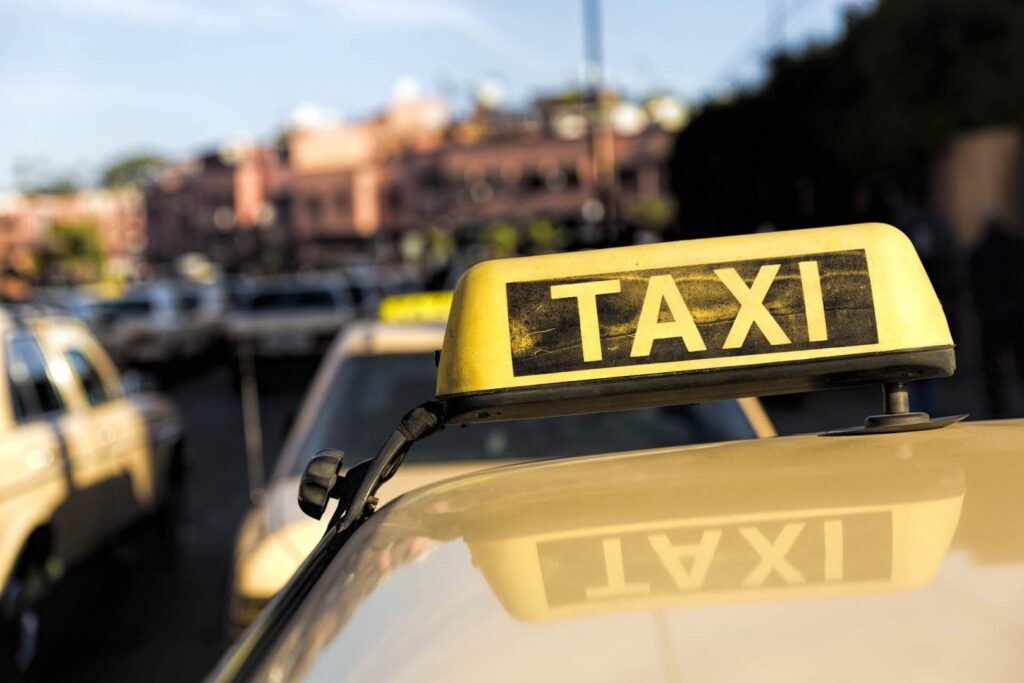
Public Transport Options in Morocco
Backpacking Around Morocco:
- Domestic Flights: Several flights are operating within the big cities of Morocco.
- Buses and trains: Cheap and reliable for traveling between big cities and towns.
- Shared Grand taxis: Great for shorter distances between cities.
- Petit taxis: They are smaller, good for 1-3 people, and operate only inside the city. (Make sure the Petit taxi is using a meter)
Cultural Insights for Backpackers Travelling to Morocco
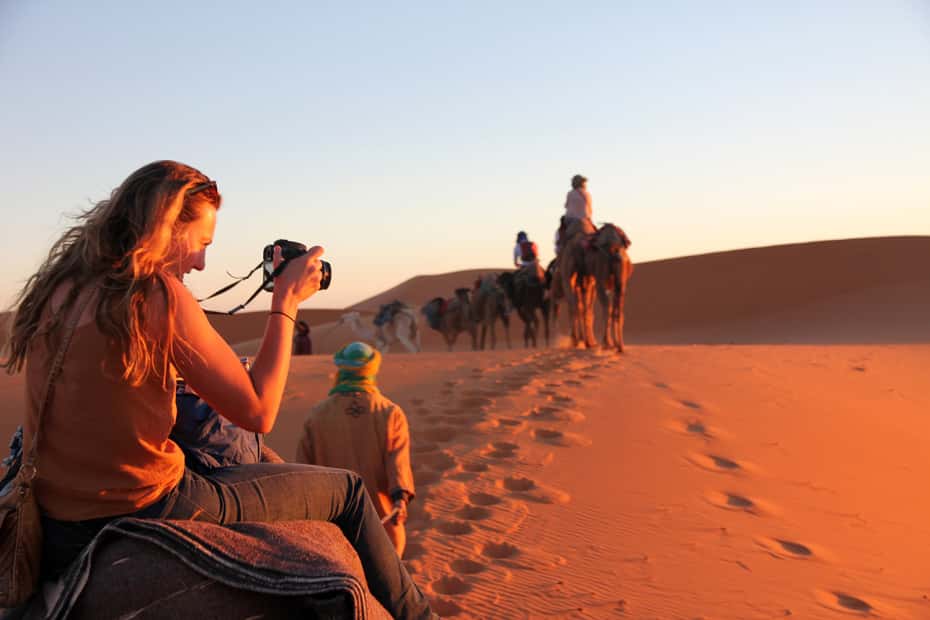
- Dress modestly: Cover up more, especially in religious places and small towns.
- Greet with “Salam alaykum”: It’s a nice way to say hello and show respect.
- Use your right hand: For shaking hands and taking things from people.
- Haggling: Bargain nicely in the markets, but appreciate the crafts.
- Mint tea is for friends: Sharing tea lets you connect with locals.
- Watch your stuff: Especially in crowds and tourist spots.
- Stick to well-lit areas: Avoid lonely places, especially at night. Stay where there are other people.
- Avoid people trying to show you directions.
Accommodation and Safety for Backpackers in Morocco
Accommodation Options for Backpackers in Morocco
- Hostels & Hotels: Cheap and social, good for meeting other travelers.
- Riads: Fancy Moroccan guesthouses, mostly located in old towns.
- Desert camps: Sleep in tents under the stars in the Sahara Desert
Backpacking Health Precautions in Morocco
- Talk to your doctor before you go: Get the shots you need to stay healthy.
- Pack a first-aid kit: Band-aids, medicine for stomachache, and your own medicine if you need it.
- Drink bottled water: Don’t drink the tap water.
- Skip iffy food: Stick to cooked meals, peeled fruits, and hot drinks from clean places.
What to see in Morocco as a backpacker
- Hike stunning trails in the High Atlas Mountains and meet friendly Berbers! Climb Mount Toubkal, 4167m!
- Ride camels across the Sahara Desert, sleep under a million stars, and see amazing sunrises and sunsets.
- Explore Chefchaouen, the “Blue City,” with its unique blue buildings and narrow streets.
- Relax in Essaouira, a charming coastal old town with delicious seafood and beautiful beaches.
- Get lost in the imperial cities; Marrakech, Fes, Rabat, Meknes.
- Visit Historical sites like Volubilis and Ait Benhaddou.
Engaging with Moroccan Communities
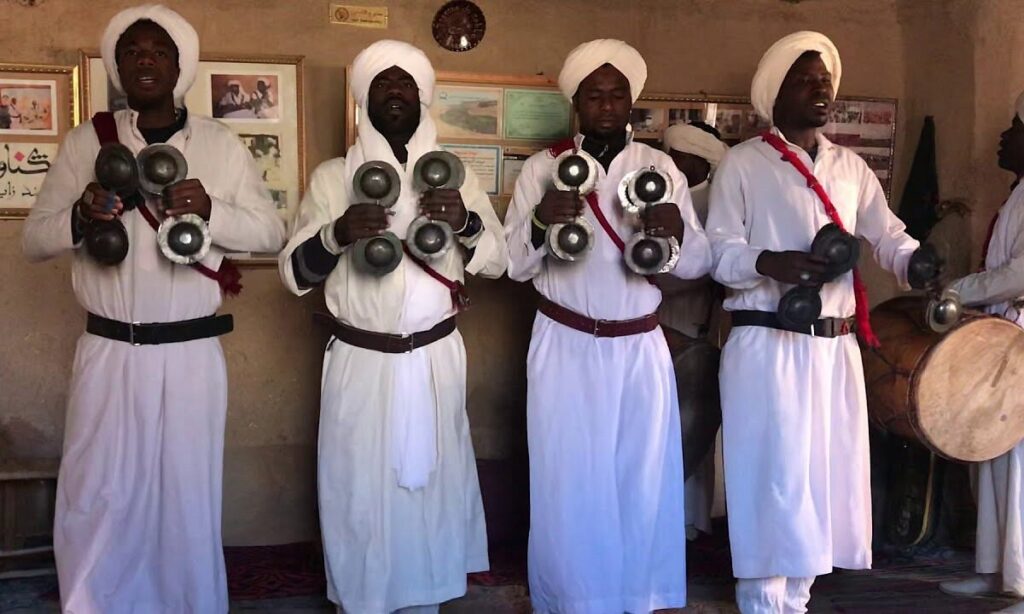
- Live like a local: Stay with a family in a village to experience daily life and traditions.
- Experience a Moroccan hammam: Get a rejuvenating scrub and connect with locals at a bathhouse.
- Explore with a local guide: Learn about Morocco’s history and culture on tours led by Moroccan experts.
Travel Responsibly:
- Eco-friendly stays: Choose hotels that use renewable energy or reduce waste.
- Respect nature: Stick to trails, don’t disturb wildlife, and avoid single-use plastics.
- Support sustainability: Choose shops and restaurants that use eco-friendly practices.

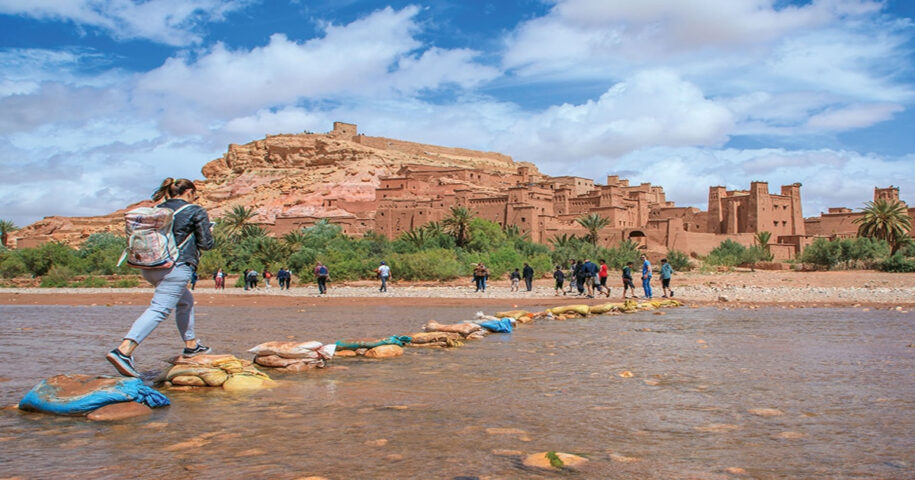
Leave a Reply